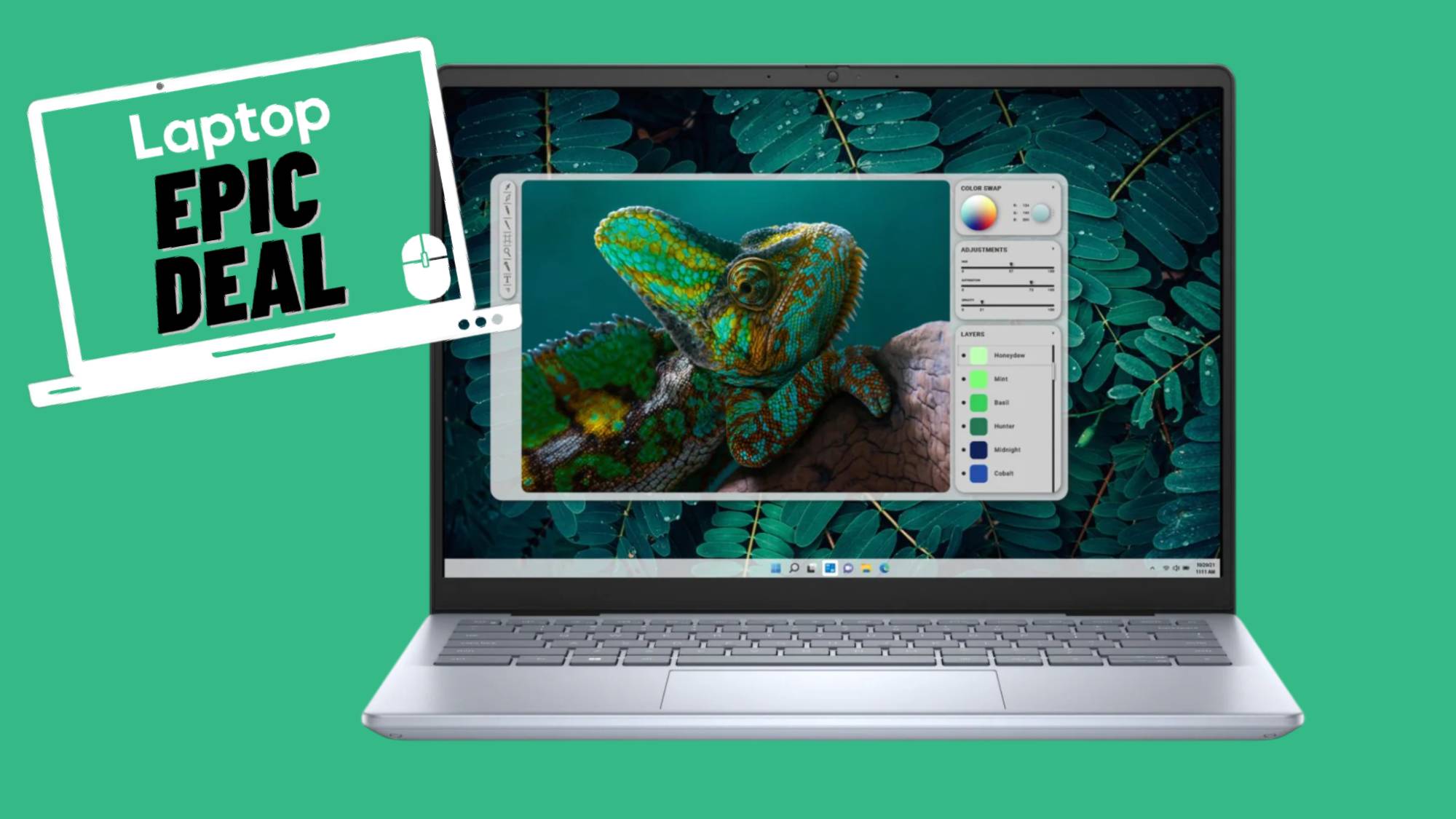Lenovo's new rugged Windows 10 laptops for students boast AMD and Intel CPUs — and start at just $299
Lenovo's refreshed Windows education lineup looks ready to make the grade
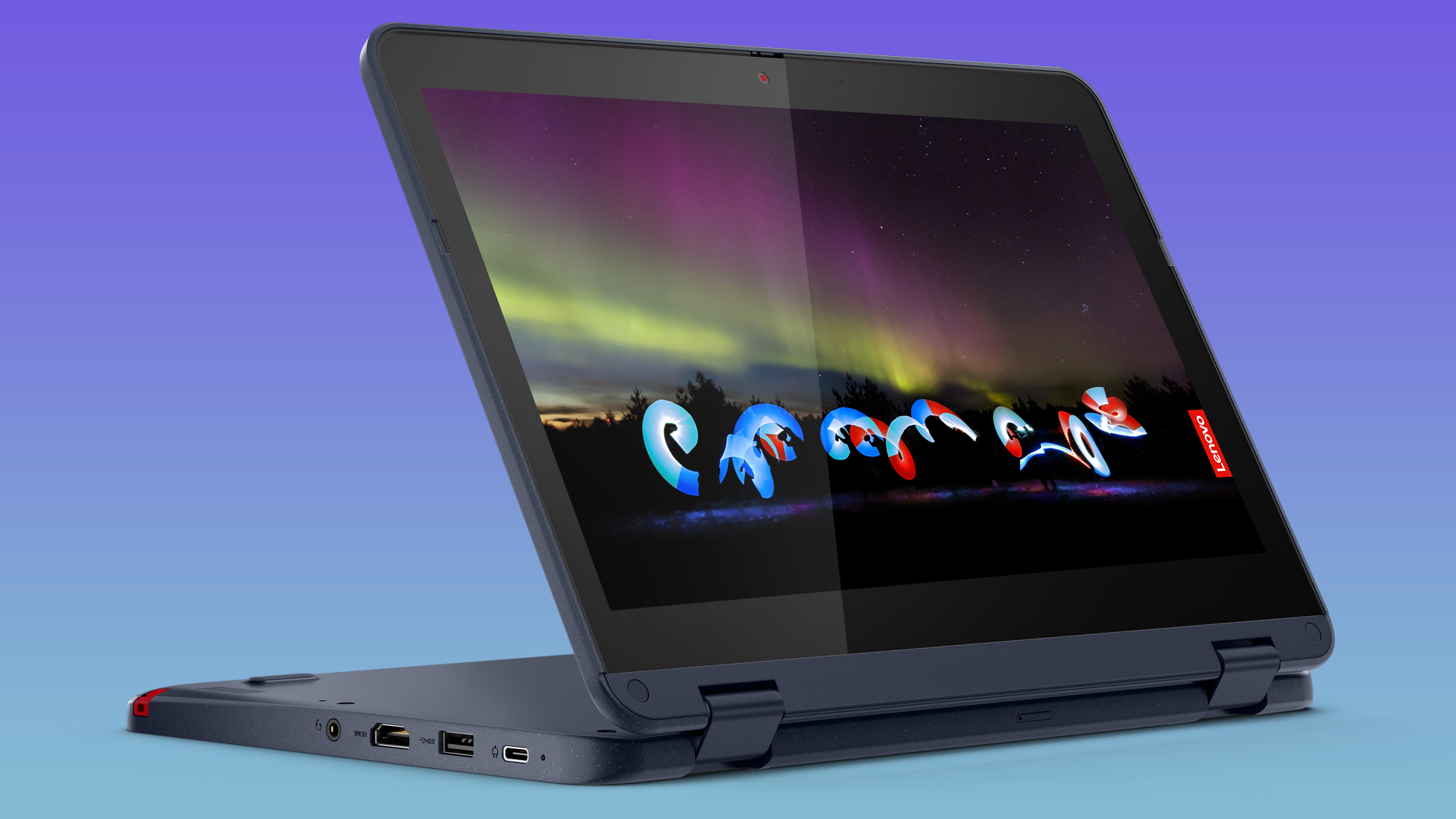
Lenovo is a dominant force in the education market with a bounty of laptops covering a range of prices. Today, the company announced four new Windows laptops that will look to continue that tradition.
These laptops cost between $299 and $429, ensuring that they won't break the budget, and all four also meet MIL-SPEC 801H ruggedized standards so students won't break them on the first day of class, either.
- Best laptops for kids in 2021
- The best cheap laptop deals for March 2021
Lenovo 14w Gen 2: Powerfully affordable
The Lenovo 14w Gen 2 uses the AMD 3015e processor aimed at meeting the needs of the education market with sufficient power and battery life. This is paired with up to 8GB of RAM and either 128GB of eMMC storage or a 256GB M.2 SSD. Display options are plentiful as is often the case with Lenovo; the base model starts with a 14-inch HD panel with up to 220 nits of brightness and you can top out at a 14-inch FHD IPS Touch panel with up to 300 nits of brightness.
The 14w Gen 2 embraces its education focus with support for Microsoft Learning Tools including Teams integration and Flipgrid video sharing. The 720p HD front-facing camera and dual microphones will help keep students engaged even during remote learning and includes a physical privacy shutter.
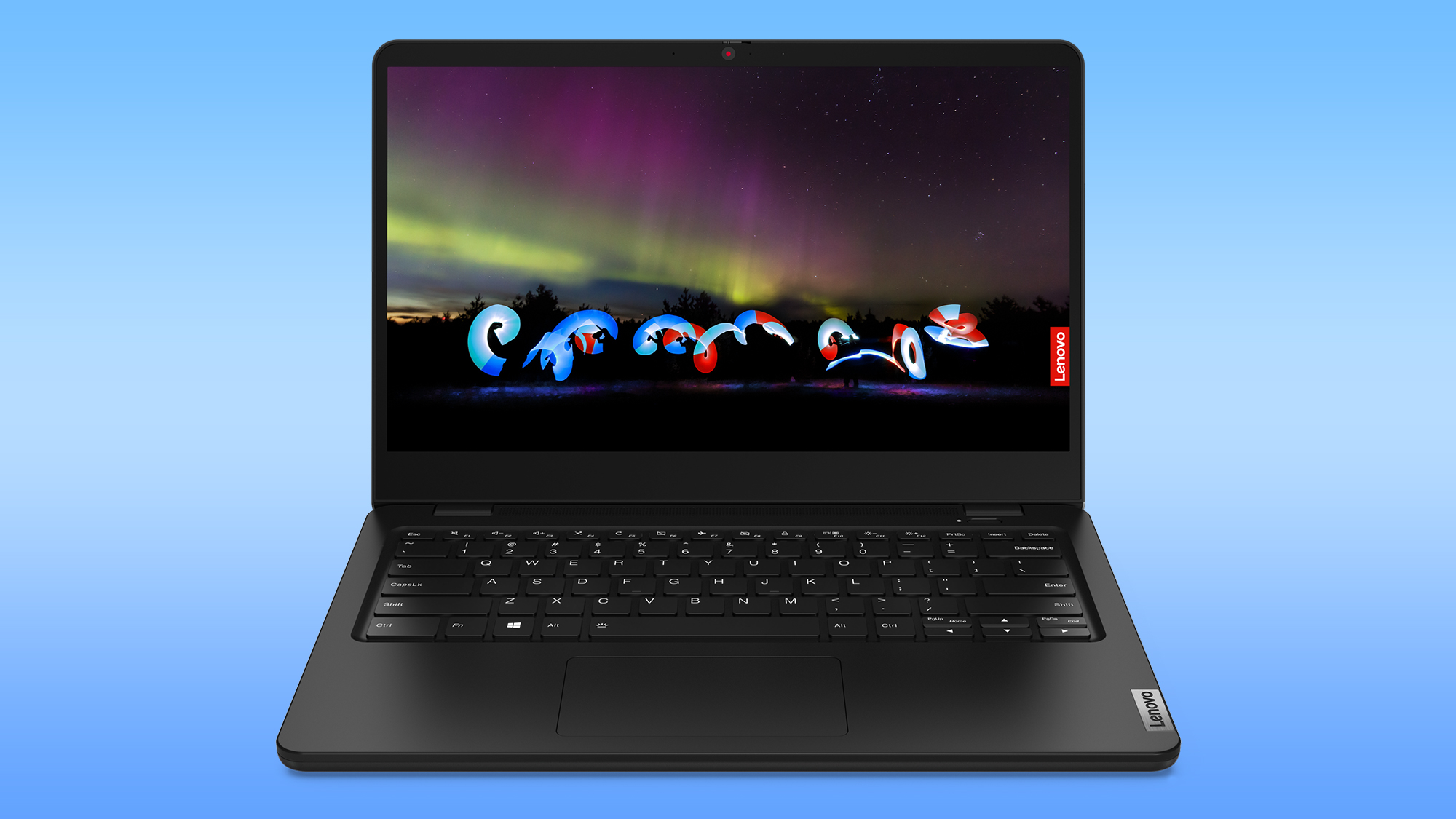
As previously mentioned, the laptop is up to the riggers of younger users who may not always be careful. To that end, it has a water-resistant keyboard, reinforced ports and mechanically anchored keys.
Support for Wi-Fi 6 is a welcome addition on such an affordable laptop and the array of ports will save students and teachers from needing to maintain a bag of dongles or a collection of docking stations. The 14w Gen 2 features a USB Type-C port, two USB 3.0 Type-A inputs, HDMI 1.4, and a 3.5 mm headphone/mic combo jack.
Lenovo claims the 14w Gen 2 will last for 10 hours on a charge, while AMD has impressed us with its battery life in recent years, we'll naturally wait for our own tests to come back to see if this is true.
Stay in the know with Laptop Mag
Get our in-depth reviews, helpful tips, great deals, and the biggest news stories delivered to your inbox.
The 14w Gen is reasonably portable at 12.8 x 8.8 x 0.7 inches and 3.2 pounds, so it should fit in most backpacks without a problem. The laptop looks sleek in its sole color option, Storm Black.
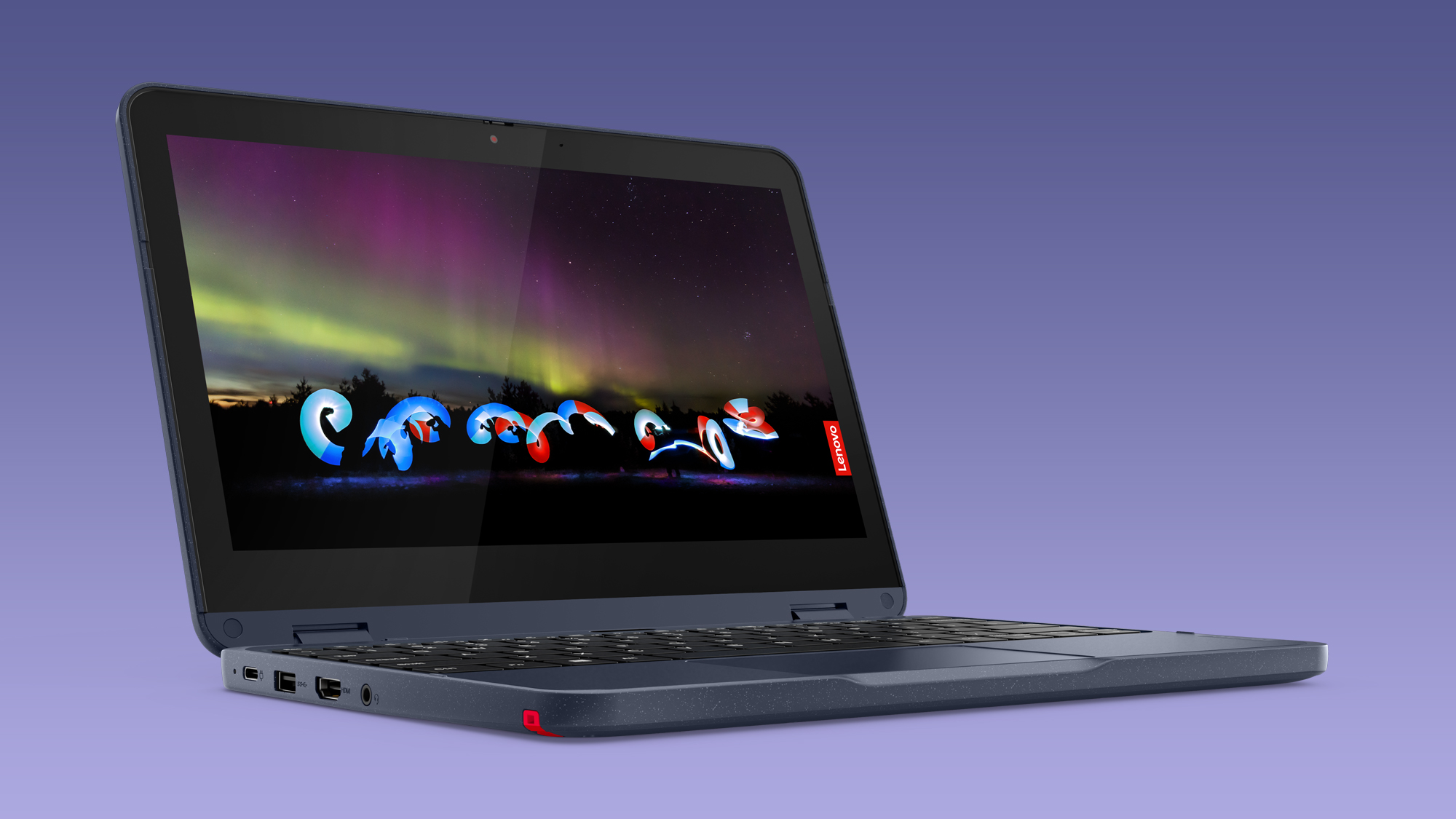
Lenovo 100w, 300w and 500w Gen 3
The rest of the new lineup is made up of the third-generation entries in the 100w, 300w and 500w lines. The 100w and 300w rely on the same AMD 3015e processor found in the 14w Gen 2, while the 500w opts for an Intel Pentium N6000 processor.
All three offer support for Microsoft Learning Tools and meet MIL-SPEC 801H standards, including water-resistant keyboards and are available in just a single blue color option with a speckled white pattern. Despite all the similarities, there are some key differences that will make the various models right for different students.
Lenovo 100w Gen 3
The Lenovo 100w Gen 3 comes with 4GB of RAM, up to 128GB storage and an HD display with 250 nits of brightness. Like the rest of Lenovo's lineup, the integrated 720p webcam includes a physical privacy shutter.
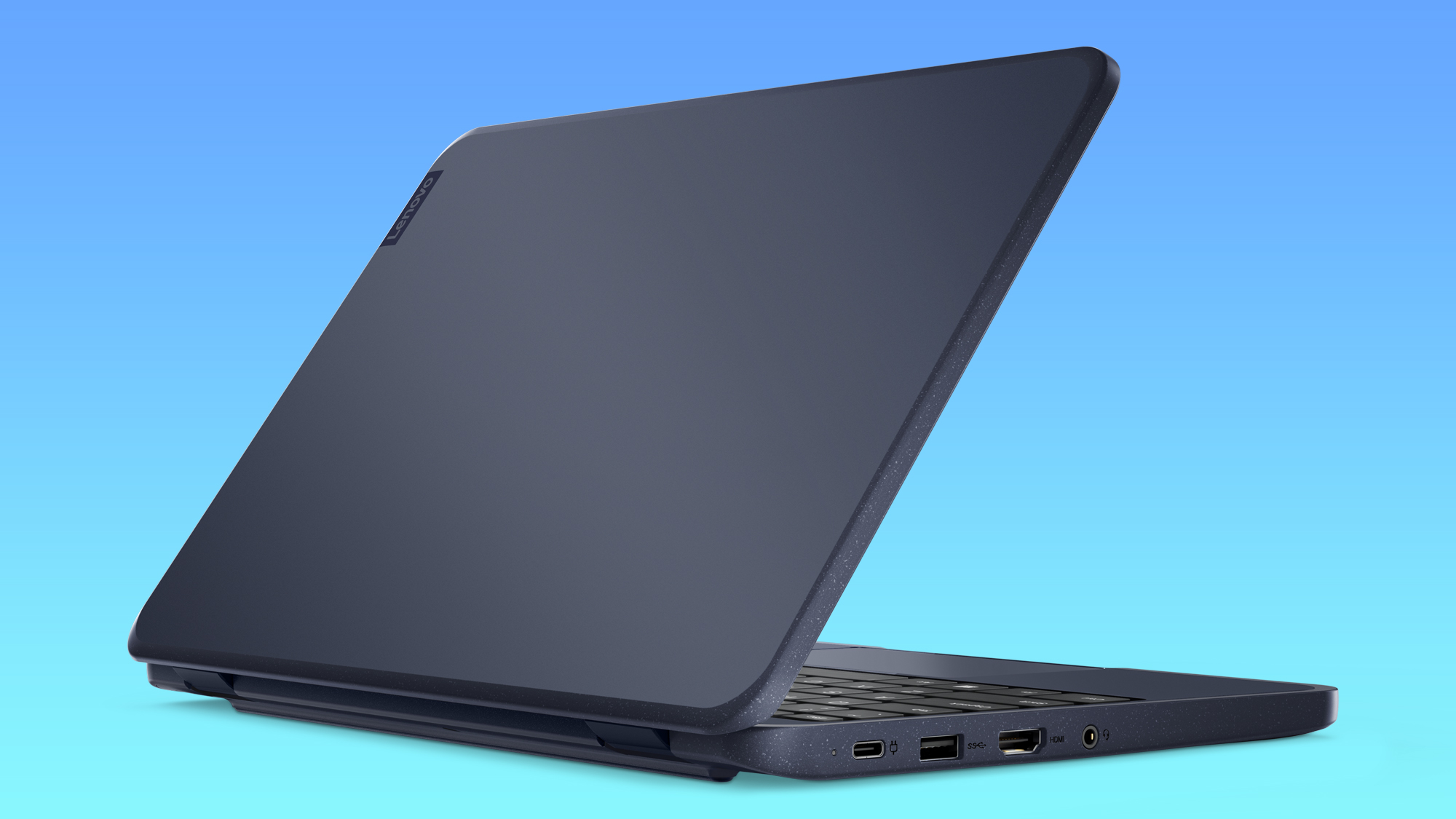
Ports are quite impressive for an entry-level model with a USB Type-C 3.2 Gen 1 input, two USB Type-A 3.2 Gen 1, an HDMI 1.4b, a microSD card reader and a 3.5mm audio jack.
The 100w Gen 3 claims 10 hours of battery life with support for quick charging with a supported 65W charger. At 2.76 pounds and 11.4 x 8 x 0.78 inches it should fit into even smaller backpacks.
Lenovo 300w and 500w Gen 3
The 300w and 500w are both convertibles adding a 360-degree Sync hinge to the equation which, paired with their Corning Gorilla Glass-protected touch screens, makes them extremely flexible learning tools. They will easily fold from a standard clamshell into a tent, presentation or tablet mode for different use cases.
The displays not only support touch input as well as stylus input with an optional AES pen but also offer Pencil Touch technology so students can write on them with a standard No. 2 pencil for more precise input without any expensive extras.
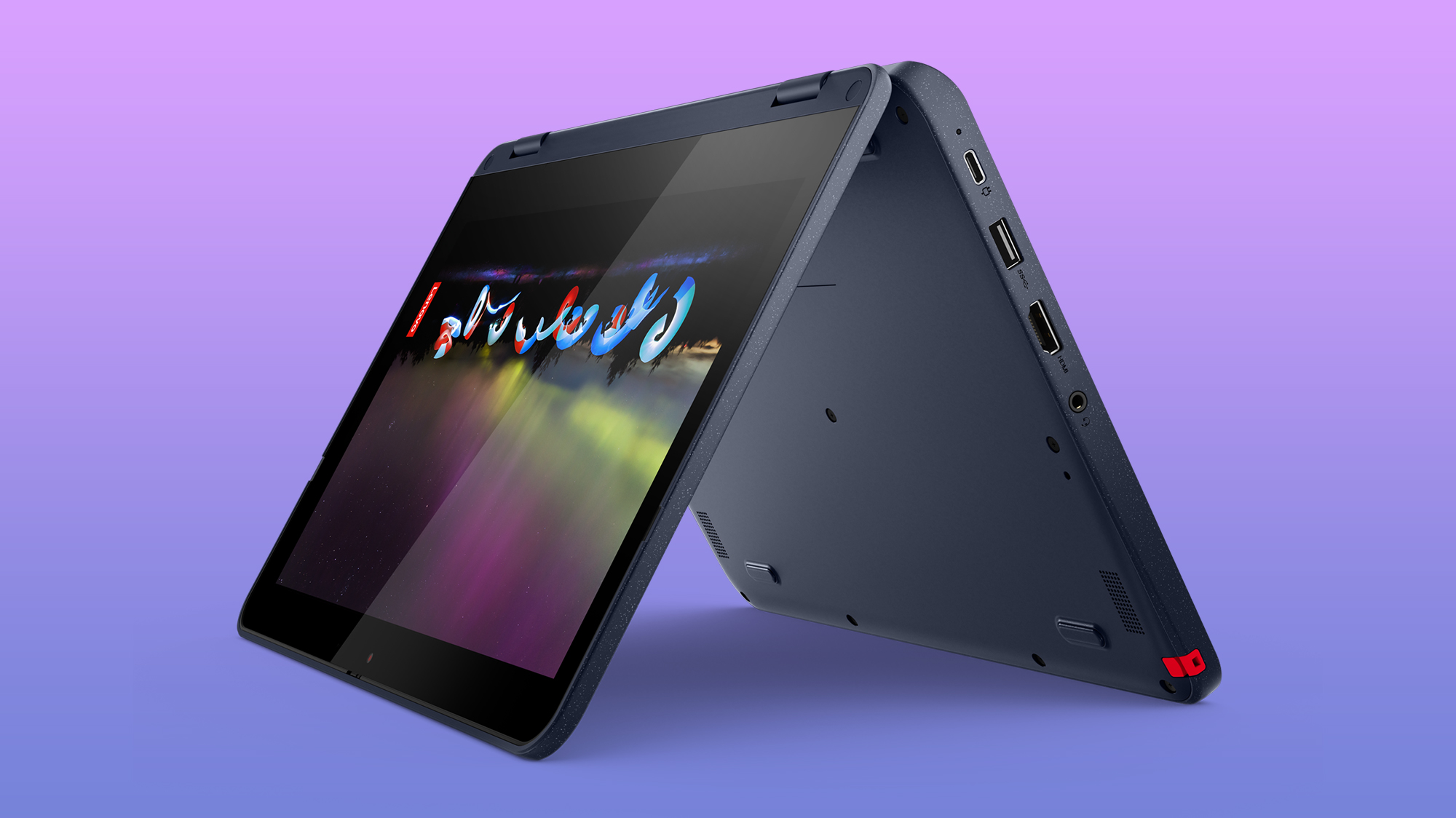
The 300w includes 4GB of RAM and a 128GB M.2 SSD, while the 500w can be bumped up to 8GB of RAM with the same 128GB M.2 SSD. Both feature identical 11.6-inch, 1336 x 768-pixel (HD) Corning Gorilla Glass touch displays with 250 nits of brightness.
Ports are also identical between the 300w and 500w: a USB Type-C 3.2 Gen 1 port, two USB Type-A 3.2 Gen 1 ports, an HDMI 1.4b port, a microSD card reader and an audio jack. Finally, for the extra security conscious, there's a Kensington NanoSaver lock slot on both laptops.
In addition to Wi-Fi 6, both the 300w and 500w have optional 4G LTE support for learning environments without available Wi-Fi.
And along with a 720p front-facing webcam with a built-in privacy shutter, the 500w comes standard with a 5MP "world-facing" camera on the back that is also available as an option on the 300w. This is a great tool for students who are often tasked with capturing photos or videos for assignments or to allow a teacher to give a view of the classroom.
The 300w and 500w Chromebooks are identical in size and weight at 11.4 x 8 x 0.78 inches and 2.9 pounds.
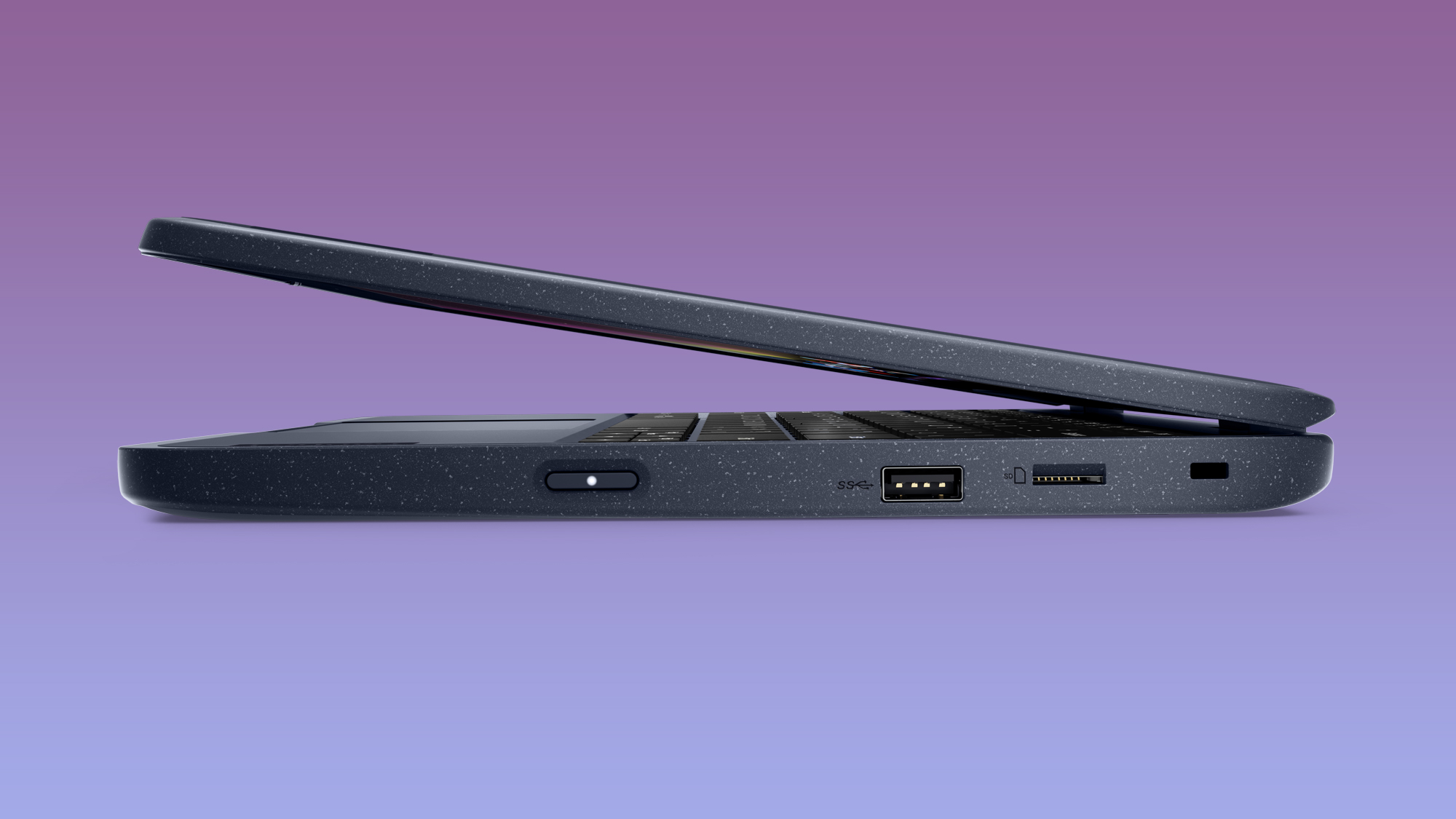
Outlook
Lenovo's new lineup of Windows-based education laptops make a solid first impression with affordable pricing, rugged durability and some unique features that should be quite compelling for students and teachers alike.
The 14w Gen 2 and 300w Gen 3 are shipping in May 2021 and start at $334 and $359, respectively. The 100w Gen 3 and 500w Gen 3 will arrive in June 2021 starting at $299 and $429.
Sean Riley has been covering tech professionally for over a decade now. Most of that time was as a freelancer covering varied topics including phones, wearables, tablets, smart home devices, laptops, AR, VR, mobile payments, fintech, and more. Sean is the resident mobile expert at Laptop Mag, specializing in phones and wearables, you'll find plenty of news, reviews, how-to, and opinion pieces on these subjects from him here. But Laptop Mag has also proven a perfect fit for that broad range of interests with reviews and news on the latest laptops, VR games, and computer accessories along with coverage on everything from NFTs to cybersecurity and more.

